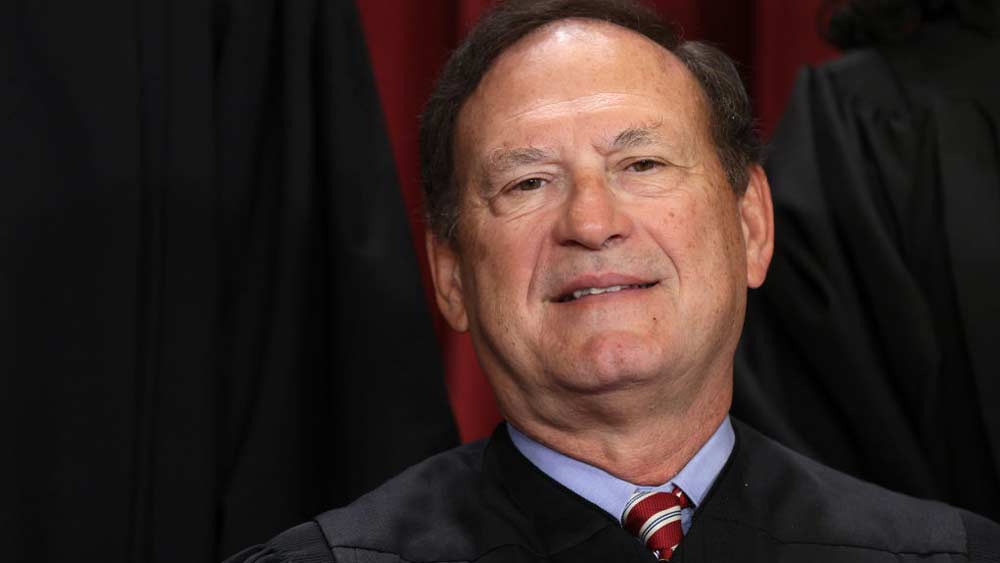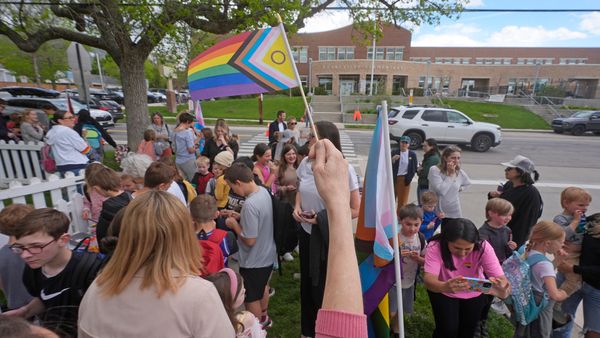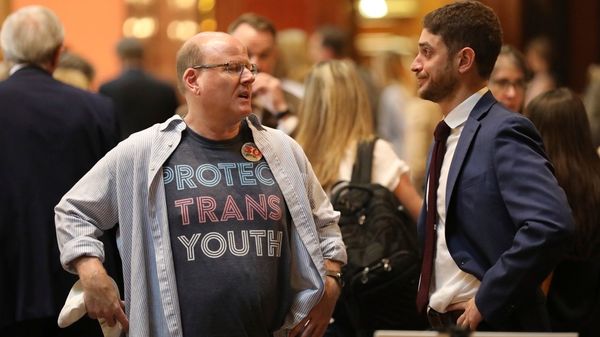Feb 21
Supreme Court Justice Samuel Alito Renews Attack on Marriage Equality
Kilian Melloy READ TIME: 4 MIN.

Supreme Court Justice Samuel Alito, a longtime critic of legalized marriage equality, blasted the right of same-sex couples to wed the person of their choice yet again in a five-page opinion in which he concurred with the Court's rejection of a case from Missouri, but pointed to the argument that legal marriage equality would burden religious people by labeling them as "bigots" if they disagree.
"The case at issue on Tuesday, Missouri Department of Corrections v. Jean Finney, No. 23-203, involved a dispute over the dismissal of jurors who voiced religious concerns about gay relationships during jury selection in an employment discrimination case," The New York Times reported.
Delving into the specifics of the case, the Times relayed that "Jean Finney, an employee of the Missouri Department of Corrections, claimed that after beginning a same-sex relationship with a co-worker's former spouse, that co-worker made Ms. Finney's job intolerable."
Finney claimed that her "colleague spread rumors about her, sent demeaning messages and withheld information she needed to complete her work duties," the Times added, going on to explain that Finney "sued the Department of Corrections, accusing the department of being responsible for the co-worker's actions."
The case was submitted to the Supreme Court for consideration because "[d]uring jury selection, Ms. Finney's lawyer questioned potential jurors about their religious beliefs about sexuality," asking, "How many of you went to a religious organization growing up where it was taught that people that are homosexuals shouldn't have the same rights as everyone else because it was a sin with what they did?"
Finney won her lawsuit, but the Missouri Department of Corrections "asserted that by excluding the jurors who voiced their religious beliefs, the trial judge had violated the 14th Amendment," and sought a new trial.
"After the Missouri Court of Appeals upheld the verdict and the state Supreme Court declined to review the case, the Office of the Missouri Attorney General asked the United States Supreme Court to take up the case," the Times detailed. The Court declined to do so.
Alito agreed with the Court's rejection of the case, but he nonetheless took the opportunity to attack marriage equality, using the case as a fresh talking point in a years-old assertion that if LGBTQ+ people have a right to marry the people they love, others will be subject to an assumption of "bigotry" if they do not think that same-sex couples should be allowed to enter into legal matrimony.
It's an argument that Alito first made in 2015, when the Court ruled in favor of marriage rights for same-sex couples in Obergefell v. Hodges.
"I assume that those who cling to old beliefs will be able to whisper their thoughts in the recesses of their homes," Alito wrote in his dissenting opinion in 2015, "but if they repeat those views in public, they will risk being labeled as bigots and treated as such by governments, employers and schools."
Curiously, that argument has not been deployed in criticisms of "Loving v. Virginia," the 1967 case in which the Court found that interracial couples have a Constitutional right to marry despite once-existing state laws, individual objections, and religious attitudes to the contrary.
The Times noted that Justice Clarence Thomas, who is African American and whose wife is white, has joined Alito in this argument. "The court, they have contended, invented a right not based in the text of the Constitution and said it had cast 'people of good will as bigots,'" the Times detailed.
Despite the Court's hard-right shift following the appointments of three conservative justices during the Trump administration – and with a legal and cultural groundswell of anti-LGBTQ+ hostility continuing to build – Alito continued to fret over what he seemed to think was the impending doom of religiously based dissent.
"I am concerned that the lower court's reasoning may spread and may be a foretaste of things to come," Alito wrote in his opinion regarding the Missouri case.
In the wake of the Court's 2022 overturning of Roe v. Wade 50 years after the case was first settled and rescinding the Constitutional right of women to terminate pregnancies, lawmakers and citizens alike have been plagued by fears of their own; namely, that the Court will revisit Obergefell v. Hodges and snatch away the rights of same-sex couples who wish to participate in the protections and obligations of marriage.
Alito and Thomas have already encouraged the Court to revisit the case, as well as decisions regarding consensual same-sex intimacy between adults and access to contraceptives by married heterosexual couples.
In anticipation of the Court's potential stripping of family rights from same-sex couples, lawmakers passed, and President Joe Biden signed into law, the Respect for Marriage Act less than six months after the Court upended Roe v. Wade. The law offers significant protections to married couples whose rights might be imperiled by a future Court decision rescinding Obergefell, but there are crucial ways in which the law cannot guarantee full marriage equality as it is currently recognized.
Kilian Melloy serves as EDGE Media Network's Associate Arts Editor and Staff Contributor. His professional memberships include the National Lesbian & Gay Journalists Association, the Boston Online Film Critics Association, The Gay and Lesbian Entertainment Critics Association, and the Boston Theater Critics Association's Elliot Norton Awards Committee.




